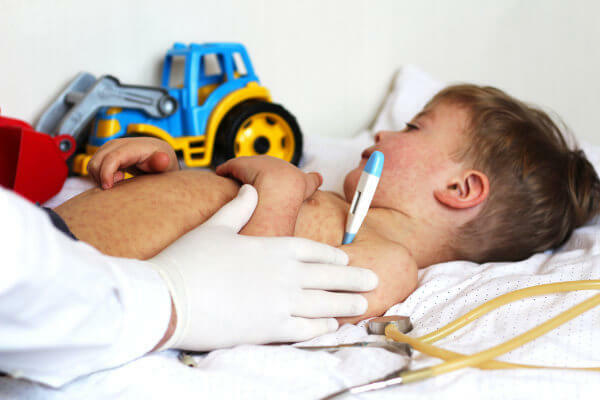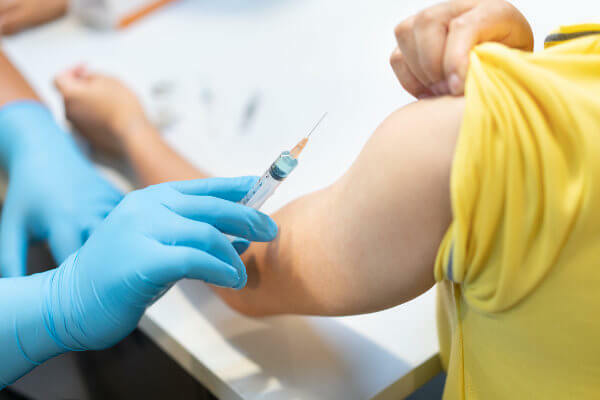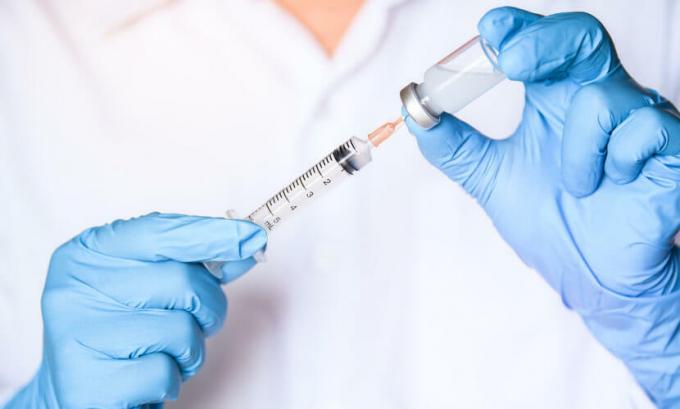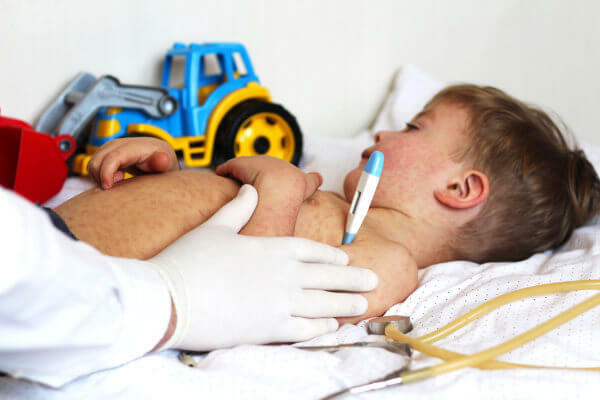Measles is a disease caused by virus that can be transmitted from one person to another through secretions eliminated when the patient speaks or coughs, for example. This disease can trigger serious complications, and, therefore, it is essential to measles vaccine, this being the only form of prevention.
Read too:10 common questions about measles
measles causative agent
Measles, as said, is a disease caused by a virus. In this case, it is a virus of RNA that belongs to gender Morbillivirus, gives family Paramyxoviridae. Humans are the only known reservoir of this virus.
Read too:Viral diseases: see what are the symptoms, treatment and ways to prevent
Do not stop now... There's more after the advertising ;)
measles transmission
Measles is a disease that is transmitted through contact with secretioncontainingthe virus which is eliminated by the patient when talking, coughing or even breathing. The mode of transmission of this disease favors contagion.
In 2016, Brazil received the measles elimination certificate granted by the Pan American Health Organization. Unfortunately, the country has been facing, since February 2018, an outbreak of measles. |
Read too:Outbreak of measles in Brazil - information about this event
Measles symptoms
Measles is responsible for triggering a series of clinical manifestations, with an incubation period of about 10 days. See the table below with the main symptoms of this disease.
Measles symptoms |
Fever high (usually above 38.5 °C) |
Cough |
coryza |
Headaches |
Conjunctivitis |
red spots on the body |
White patches on mucous membranes (Koplik's signs) |
You symptoms of measles are divided, according to the Ministry of Health, in threeperiods:
Period of infection: when the main symptoms of the disease appear, such as fever, cough, runny nose, conjunctivitis and sensitivity to light (photophobia). This period lasts approximately seven days, and from the second to the fourth day, the appearance of spots on the body begins. An important point to be highlighted is the need for alert, in case the presence of fever is observed for more than three days after the appearance of spots on the body, this may be a sign of complications.
Remission: when, as the name implies, there is a reduction in the symptoms of the disease. The rashes on the skin darken, and in some people, fine scaling is seen.
toxic period: when there is an impairment of the resistance of the human body, with viral or bacterial superinfection being favored.

Measles causes, among other symptoms, fever and spots on the body.
Measles complications
Measles is a diseaseserious able to evolve to complications that can even lead to death. Among the complications, we can mention the pneumonia and the encephalitis. It is noteworthy that these can also leave sequelae, such as deafness, reduced mental capacity, blindness and growth retardation. We must not forget that the disease can kill both adults and children, and this is one of the main causes of morbidity and mortality among children under five years of age.
measles treatment
Measles is a disease that does not have a specific treatment, that is, there are no drugs that aim to cure it. The drugs used in patients with the disease are only aimed at control symptoms or treat a complication.
It is noteworthy that, although there is no specific drug, the World Health Organization recommends that kids who have the disease receive doses of vitamin A. This administration's main objective is to prevent serious cases from developing in them.
measles prevention

Measles is a vaccine-preventable disease.
In the case of measles, the only form of prevention is vaccination. Currently, it is recommended that the child take a dose of triple viral vaccine at 12 months of age and a dose of tetra viral vaccine at 15 months of age. See below the measles vaccination schedule for non-vaccinated people.
|
Measles vaccine schedule for non-vaccinated (Information from the Ministry of Health) |
|
It is important to highlight that some people cannot get the measles vaccine. People who have, for example, a suspected case of measles should not be vaccinated. The same goes for pregnant women, children under the age of six months and immunocompromised people.
Read too:Why is vaccination important?
Heads up: It is important to keep your vaccination card well so that you can know if your vaccinations are up to date. If you don't have the vaccination card and you don't know if you really had the vaccine, look for a health unit and update your vaccinations. |
By Ma. Vanessa Sardinha dos Santos
Would you like to reference this text in a school or academic work? Look:
SANTOS, Vanessa Sardinha dos. "Measles"; Brazil School. Available in: https://brasilescola.uol.com.br/doencas/sarampo.htm. Accessed on June 27, 2021.


